Seven Keys for Understanding Isaiah
by Avraham Gileadi, Ph.D.
1. Why Understanding Isaiah Has Waited until the End-Time
Preconceived ideas, spiritual inertia, mental blocks, fear of the unknown, and just plain ignorance—all have prevented people from understanding the prophecies of Isaiah. Although Isaiah is the most frequently quoted prophet in all of sacred scripture, and although the Lord made it a commandment to search Isaiah’s words, most people who have attempted it have either given up or, worse, indulged in speculation.
You can hardly blame anyone. Isaiah himself says that God commanded him to record his prophecies “in a book for the end-time” (Isaiah 30:8). Only then would his people understand them, as he says: “In that day shall the deaf hear the words of the book and the eyes of the blind see out of gross darkness” (Isaiah 29:18)—referring to his own book, the Book of Isaiah. Nephi concurs: “In the days that the prophecies of Isaiah shall be fulfilled men shall know of a surety, at the times when they shall come to pass. . . . for I know that they shall be of great worth unto them in the last days; for in that day shall they understand them” (2 Nephi 25:7–8).
Indeed, understanding Isaiah has waited until the literary tools required to uncover his message have become available. In spite of people’s sincere desire or best efforts, only a hands-on knowledge of the Book of Isaiah’s internal mechanics could accomplish it.
2. A Translation from the Hebrew Must Convey the Meaning
It may seem self-evident that if we are trying to understand Isaiah from an English rendering, then it needs to reflect as closely as possible the meaning and sense of what the Hebrew text is saying. And yet, many people today still cling to antique translations such as the King James Version for their “traditional” and “poetic” value rather than accuracy. Even though one of thirteen Articles of Faith declares, “We believe the Bible to be the word of God as far as it is translated correctly” (Articles of Faith 1:8), we often see inordinate reverence for the KJV—almost as if it was the scriptures’ original tongue.
Take the problematic Hebrew word nes, for example. It is translated three different ways in the KJV: “ensign,” “standard,” and “banner.” Yet the word nes in the Book of Isaiah is a key word that functions as a pseudonym or codename of God’s end-time servant, on the one hand, and of the end-time king of Assyria, on the other. It therefore becomes an important term to translate consistently. One figure is a rallying point for God’s people, the other for their enemies.
3. Isaiah’s Is an End-Time Scenario as well as a Historical Scenario
Literary structures in the Book of Isaiah play a key role in revealing God’s prophetic message for our day. Seven overarching structures, which Isaiah has layered one upon another, determine his book’s overall composition. They create the forest framework into which he plants the trees, the individual passages we read on the surface that are only a part of the message. Knowledge of underlying literary patterns is essential if we would understand what his writings are all about.
Linear structures follow a timeline from beginning to end. The structure, Trouble at Home, Exile Abroad, and Happy Homecoming, for example, shows that Israel’s history doesn’t end with its ancient apostasy and exile but ends with its return from dispersion at the end of the world.
Another structure—Test One, Test Two, and Test Three—resembles the Greek Odyssey as God’s end-time people face three obstacles in order to qualify for deliverance from destruction. The tyrannical king of Assyria forms the equivalent of the one-eyed Cyclops who challenges Odysseus; idolaters and their enticements are the equivalent of the sirens who woo him; and false brethren are the equivalent of his wife’s false suitors who squander his inheritance.
Isaiah’s synchronous literary structures transpose his entire book into an allegory of the end-time. In that context, the names of ancient nations and persons function as codenames of end-time nations and persons. Egypt, the great superpower of the ancient world, becomes the type of the great end-time superpower, America. Assyria, a militaristic power from the North that conquered the ancient world, becomes the type of an end-time world power from the North that conquers the modern world. And so forth.
4. Isaiah’s Prophecies Reflect a Hebrew Typological Worldview
Isaiah’s Hebrew worldview—that sacred history repeats itself—permeates his prophecy. Says the writer of Ecclesiastes, “That which has been is that which shall be, and that which has been done is that which shall be done. There is nothing new under the sun. Is there anything of which it may be said, See, this is new? It already has been of old, in times before us” (Ecclesiastes 1:9–10). Jesus makes this an interpretive key in 3 Nephi 23:3, when he says that “all things that he [Isaiah] spake have been and shall be”—they happened in the past and will again in the end-time.
Isaiah uses this manner of prophesying when he predicts thirty end-time versions of ancient events: Israel’s apostasy, the Babylo¬nian captivity, the callout of Abraham, Lot’s deliverance from Sodom, the destruction of Sodom and Gomorrah, Assyria’s world conquest, Assyria’s invasion of the Promised Land, Assyria’s siege of Jerusalem, the Egyptian bondage, Israel’s exodus out of Egypt, its wandering in the wilderness, the conquest of the Promised Land, the rebuilding of the temple, and so forth. All repeat themselves at the end of the world.
5. The Book of Isaiah Forms a Web of Literary Interconnections
Isaiah uses many pseudonyms as codenames or aliases of God’s end-time servant and the end-time king of Assyria. Until we search out and connect these terms, therefore, we will fall short of perceiving the full extent of Isaiah’s prophetic message. As we do, on the other hand, an entire end-time scenario opens up, creating a prophecy within a prophecy.
Terms such as the Lord’s arm, hand, ensign, rod, staff, light, voice, darkness, anger, wrath, and so forth form connecting links throughout the Book of Isaiah that identify God’s servant and the king of Assyria. The Lord himself appears under several such pseudonyms. They provide clues to these persons’ character traits and the end-time roles they perform.
6. Isaiah’s Prophecies Speak of Two Distinct Messianic Persons
A crucial thing to keep in mind is that there exist two kinds of messianic prophecies. First are prophecies that predict the coming of an end-time servant of God who restores God’s ancient covenant people—the Jews, Ten Tribes, and Lamanites of today—by preparing them for the coming of Israel’s God Jehovah to reign on the earth. Second are prophecies that predict the coming of Israel’s God Jehovah.
Many messianic passages of Isaiah define what is clearly Israel’s temporal salvation or physical deliverance, involving a messianic person who restores Israel’s twelve tribes just prior to the coming of Israel’s God Jehovah to reign on the earth. They don’t define Israel’s spiritual salvation, which is a function of Jehovah himself.
Word links provide internal literary evidence of Messiah’s identity as Israel’s God Jehovah. Isaiah 53:5, for example, reads, “He was pierced for our transgressions, crushed because of our iniquities; the price of our peace he incurred, and with his wounds we are healed” (Isaiah 53:5). But the “transgressions” and “iniquities” of his people that Messiah takes upon himself, and the “peace” and “healing” that he generates on their behalf are functions specific to Israel’s God Jehovah throughout the Book of Isaiah. These word links leave no doubt that the suffering person of Isaiah 53:1–10 is Jehovah God of Israel.
7. People or Persons Isaiah Describes Reveal a Ladder to Heaven
People who appear in the Book of Isaiah aren’t just incidental to his prophecy. They additionally represent distinct spiritual levels, some higher, some lower, on a ladder to heaven. Each category within this hierarchy corresponds to a particular covenant and its laws that people are willing or unwilling to keep. Beginning with the lowest, seven spiritual categories are Perdition, Babylon, Jacob/Israel, Zion/Jerusalem, God’s “sons” and “daughters,” seraphim, and Jehovah.
As people ascend the spiritual ladder by keeping the laws of God’s covenants pertaining to each level, they grow more like God and acquire his divine attributes. Isaiah’s creation theme shows how God continues to create or re-create persons closer to his own image and likeness as they advance from one category to the next. Even the heavens and the earth participate in this re-creation. Wicked persons, on the other hand, are de-created, becoming less than they were.
A time of testing precedes people’s spiritual ascent or rebirth. That trial period forms a descent phase in which those with whom God makes a covenant must prove faithful under all conditions. With each ascent, God’s tests become correspondingly greater as persons are required to keep a higher law. The blessings of higher covenants and their laws, however, increase exponentially. Whether God’s people ascend as a nation or as individuals, the process is the same: their descent phase involves humbling and overcoming opposition while their ascent phase is marked by joy and exultation. Israel’s Messiah established the pattern of descent before ascent. Descending below all, he ascended above all to his Father throne.
(Excerpts taken from the book, Becoming Kings and Queens of the Gentiles, pp 5–26.)







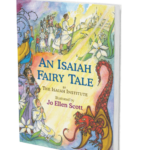

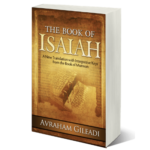
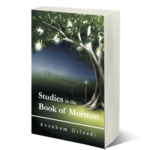
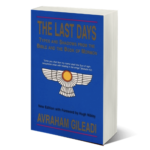
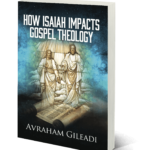

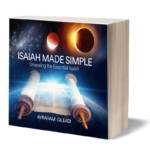
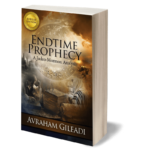

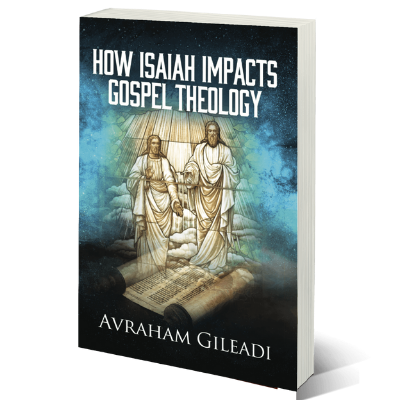
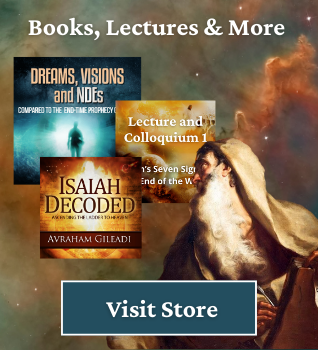
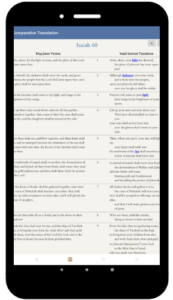
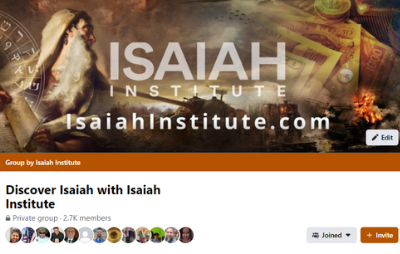

You should not feel discouraged. Many of us read his books. I am conducting a study with several people in my country, all LDS members. And I use one of your books as a textbook. I think that the main problem is that many of our brethren have not understood 3N 23:1-4. MMC
I also have issues with this. No one seems to want to explore, everyone seems to be on edge regarding doctrine and ideas. As soon as there is a little cognitive dissonance, everyone clams up.
But I think I understand what it is. On the one had, we know that we need to follow the Prophet, it is part of showing our loyalty to the Lord. This is what is ingrained in us since Primary (the song “Follow the Prophet”). We have therefore (whether rightly or wrongly) identified sources of information as “being from the Prophet”, and we (collectively) cling to those.
Church publications, stuff from BYU (it belongs the Church, so it must be truth, right?), General Conference talks, etc. are considered approved sources.
On the other hand, we each have our own gift of the Holy Ghost. This is where the fear and trembling come it. What if we receive new information that appears right, tastes good, and increases our knowledge and understanding and opens doors for us and it appears contrary (or at least it isn’t being taught) to anything from the Church? Quelle Conundrum.
If I give a talk, and I cite sources from General Authorities, or scholars at BYU, it will be well received.
But if I stray from that, and quote things that are true, but the citation comes from an unknown source, an awkward feeling enters the room.
The bottom line here is that this problem may be self-inflicted. We have beat the drum “Follow the Prophet” so hard what we perhaps have diminished the enthusiasm to step out and see what is available to us. We either don’t trust our selves or haven’t really learned how to find and understand truth. The excitement and enthusiasm of learning something new is dampened with “that didn’t come from the Church, you better be careful, you might fall”.
If we are so discouraged from experimentation (Alma 32) how are we supposed to learn?
The line feels delicate to me still. I find myself still striving to get into the groove such that I am being diligent and dedicated, but not over zealous.
Love what you are doing here Avraham, thank you for being who you are. Can’t thank you enough for shining the light on some of these things.
Kevin
I think Kevin is right on. It is very comforting for the carnal man to assume that all we need to know about the Gospel will be taught to us by the prophet or be taught in church. If it is not taught in church, they conclude we don’t need to know it. It is not necessary for our spiritual or temporal salvation.
If one really understands the scriptures, God teaches that we are supposed to be born again and then receive The Holy Ghost and feast upon the word of Christ. We are supposed to receive the Holy Ghost and press forward in faith feasting on the word of Christ. This is the strait and narrow path (2nd Nephi 31:14, 17-20). Nephi tells us the Holy Ghost will tell us all things what we should do (2nd Nephi 32:3, see also John 14:26). Jesus told the disciples that he must go away but he would send the comforter who could minister to them on a personal basis.
So it is false doctrine that the prophet will teach us all we need to know. Instead we are supposed to feast upon the words of Christ through scriptures, personal revelation through the Holy Ghost, and occasionally we may get Christ’s word through the prophet.
On problem with believing that the prophet will teach us all we need to know is that any man is very limited. We all have blind spots. One of the great truths taught by Isaiah is that in the end times some prophets will be blind:
7 These too have indulged in wine and are giddy with strong drink:
priests and prophets have gone astray through liquor.
They are intoxicated with wine and stagger because of strong drink;
they err as seers, they blunder in their decisions.
8 For all tables are filled with vomit; no spot is without excrement.
Isaiah 28: 7-8
10 Their watchmen are altogether blind and unaware;
all of them are but dumb watchdogs unable to bark, lolling seers fond of slumber.
11 Gluttonous dogs, and insatiable, such indeed are insensible shepherds.
They are all diverted to their own way, every one after his own advantage.
12 Come, they say, let us get wine and have our fill of liquor.
For tomorrow will be like today, only far better!
Isaiah 56:10-12
Because of this, God has to send the latter-day servant, a seer who will correct errant beliefs,
16 Therefore, thus says my Lord Jehovah: I lay in Zion a stone, a keystone,
a precious cornerstone, a sure foundation. They who believe it will not do rashly.
Isaiah 28:16
Another problem with reliance on any man, including the prophet, is that a single person cannot be everywhere with everyone. If we assume the prophet is our primary source, we are placing the burden on the prophet that Jesus taught should be performed by the Holy Ghost (John 14: 16-17, 26). The Holy Ghost can be with every believer 24 hours a day. The prophet in comparison cannot do that. In fact Jesus said it was better for Jesus to leave so he could send the Holy Ghost.
To understand this doctrine is not anti-prophet or anti church. It is pro Christ and pro Holy Ghost. But too many members of the church are possessed by a spirit of spiritual blindness, so they do not see this truth. They think you are attacking the prophet or church if you speak these truths. They would rather believe that all is well in Zion.
25 Wo be unto him that crieth: All is well!
26 Yea, wo be unto him that hearkeneth unto the precepts of men, and denieth the power of God, and the gift of the Holy Ghost!
2 Nephi 28:25-26
To rely on any man is to rely on the arm of flesh, which Nephi tells us leads us to be cursed:
31 Cursed is he that putteth his trust in man, or maketh flesh his arm, or shall hearken unto the precepts of men, save their precepts shall be given by the power of the Holy Ghost.
2 Nephi 28:31
Nephi is not alone. Jeremiah also says a person is cursed who trust in man and makes flesh his arm:
5Thus says the LORD:
“Cursed is the man who trusts in man and makes flesh his strength,
whose heart departs from the LORD.
6For he shall be like a shrub in the desert, and shall not see when good comes,
but shall inhabit the parched places in the wilderness, In a salt land which is not inhabited.
– Jeremiah 17:5-6
In summary both Nephi and Jesus taught that we are to rely on the Holy Ghost. Getting guidance from a prophet can be a help, but it is occasional and limited. The Holy Ghost does not have these limitations.
I deeply appreciate your labors in bringing understanding of Isaiah to me. I do believe the day will come when people will thirst for an understanding of Isaiah. A shocking number of Latter-day Saints appear to be asleep. My husband and I are regular temple attenders and we also work in the temple in Orlando Florida. We attended the last session before closure due to the COVID-19 pandemic. I expected the session to be full. I was shocked that there were less than 12 people total. The Temple was quiet. I wonder if we aren’t under some kind of condemnation from the Lord. Thank you for all you do!!
Studying Isaiah, using your books and breakthroughs, has not only opened up the Book of Isaiah for me but also given me insight and background for all scripture. I am deeply grateful to have found you and your work in Isaiah and appreciate the many years of devotion and study on your behalf. I also am sad that others in the Church do not follow the commandment to study Isaiah and are missing out on the joy and fulfillment that it brings to your spiritual life. Thank you so much Bro. Gileadi – your work has profoundly changed my life.
I am truly grateful for your work. You have been given a gift by God! My brain can barely handle these things so it takes me a long time to go over them again and again.
Thank you so much
Isaiah 29:10 For the LORD hath poured out upon you the spirit of deep sleep, and hath closed your eyes: the prophets and your rulers, the seers hath he covered.
It may be out of context, but I think it applies to us today. I am grateful for your work.
I think the main problem is that most church members are simply unaware of Bro Gileadi and has outstanding work. I tell people to look up his website or read his books, but I don’t think many do.
I’ll carry on doing my best to highlight our need to comprehend Isaiah’s relevance to us in our day.
I was so thrilled to finally have answers and enlightenment concerning Isaiah that I have read and reread and analyzed and cross referenced almost all of Avraham’s published books. When I get done rereading a book I can’t help but reread it again, or listen to it. Naturally I want to share my findings and bounce questions off others. There lies the rub. Some tell me they love Isaiah and change the subject. Others roll their eyes back and smile.
After reading and listening together with my wife we decided to send packages of The Isaiah translation and either Isaiah Decoded or Windows on Isaiah to ALL of our family and friends. 3, 4 or 5 each month.
We are seeing some become as excited as we are. Others may follow suit or may not. At least now we have others to to share thoughts and insights with. Some we send an Audible selection, some a Kindle version, whatever the Spirit directs. Most get the book with the translation and a study help.
Be assured Avraham that the Spirit and your work is waking many up.
Thanks for the YouTube videos, seminars, and the assume resources at Isaiahinstitute.com and Isaiahexplained.com.
Your work has changed my life and is making a difference.